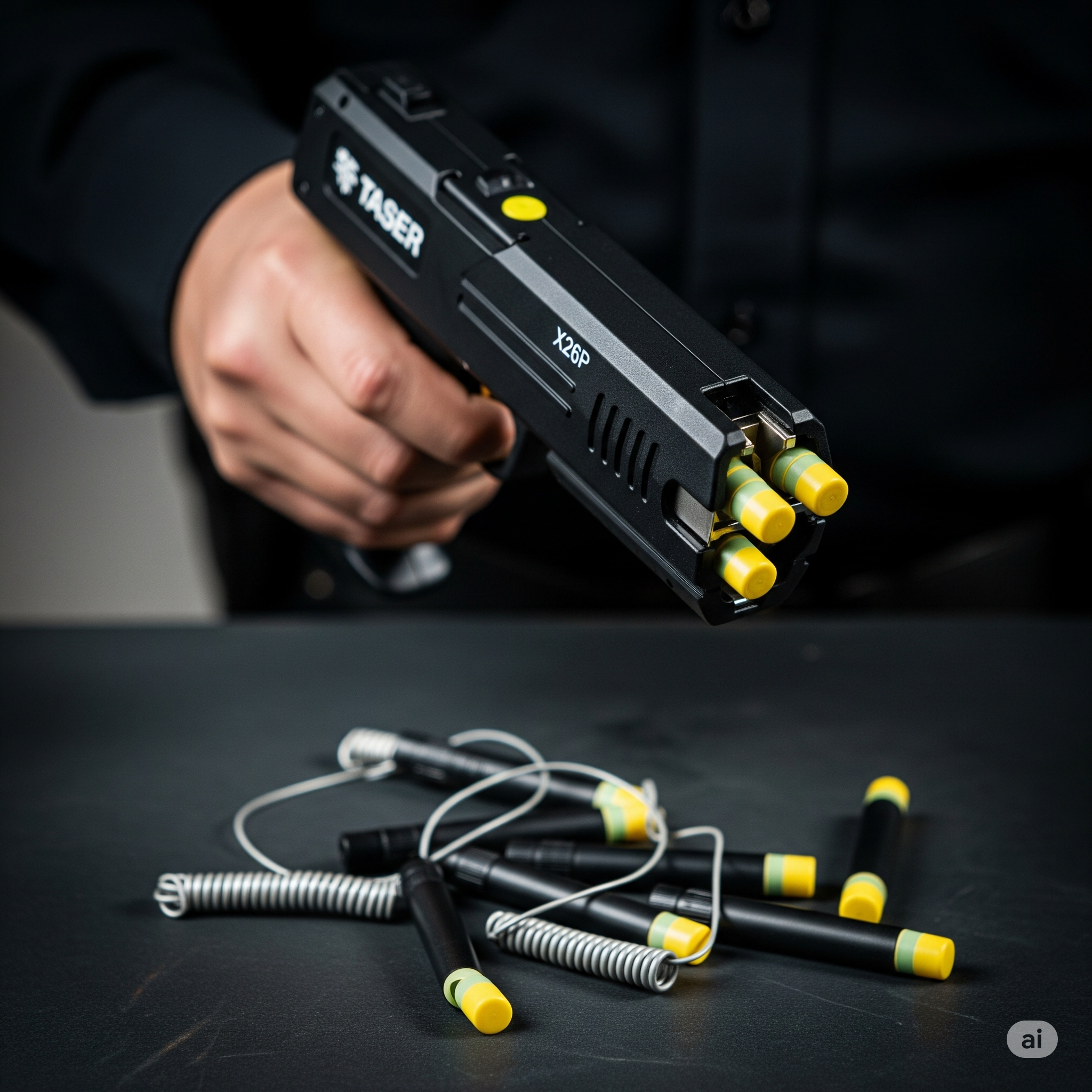Taser for Self-Defence vs. Gas Guns: Which Option is Right for You?

Introduction
In today’s uncertain world, personal safety has become a top priority for many South Africans. With rising crime rates and the growing demand for non-lethal self-defence tools, alternatives like tasers and gas guns are increasingly sought after. But what’s the difference between these two, and which one suits your needs better?
A taser for self-defence provides immediate protection by delivering an electric shock to temporarily incapacitate an attacker, while a gas gun—powered by compressed CO₂ or green gas—fires projectiles that can either serve recreational purposes or act as deterrents. Both have unique advantages, limitations, and applications.
This blog will dive deep into the features, benefits, legal considerations, and practical uses of tasers and gas guns, helping you make an informed choice.
What Is a Taser for Self-Defence?
A taser is a handheld electroshock weapon designed to deliver a high-voltage, low-current electric charge. When discharged, it temporarily disrupts muscle control, immobilizing an attacker for several seconds—long enough for you to escape.
-
Key Features of Tasers:
-
Compact and easy to carry.
-
Immediate immobilization of attackers.
-
Rechargeable or battery-operated.
-
Often include built-in flashlights for dual use.
-
-
Benefits of Tasers:
-
Effective in close encounters.
-
Non-lethal alternative to firearms.
-
Easy to operate, even for beginners.
-
You can browse tasers for self-defence online, where a wide variety of models are available for both men and women.
What Is a Gas Gun?
A gas gun operates using compressed CO₂ or green gas to propel pellets or rubber bullets at high speed. These guns mimic the design and handling of real firearms, making them popular among enthusiasts for sport, training, and sometimes self-defence.
-
Key Features of Gas Guns:
-
Powered by CO₂ or green gas.
-
Available in pistol, rifle, and shotgun styles.
-
Capable of firing multiple rounds rapidly.
-
Highly realistic in appearance and handling.
-
-
Benefits of Gas Guns:
-
Excellent training tools for firearm enthusiasts.
-
Psychological deterrent due to their realistic look and sound.
-
Can cause pain and injury when used with rubber bullets, aiding in self-defence.
-
For those looking to purchase, gas guns for sale are easily accessible through trusted online suppliers.
Taser for Self-Defence: Practical Applications
Tasers are best suited for close-range self-defence scenarios where physical confrontation is unavoidable. They’re particularly popular among:
-
Women and students: Lightweight and easy to carry in a handbag or pocket.
-
Security professionals: Useful for crowd control or deterring aggressive individuals.
-
Everyday civilians: Reliable in situations where carrying firearms isn’t possible.
Unlike gas guns, tasers require direct contact with the target unless they’re advanced models with cartridge-based projectiles.
Gas Guns: Practical Applications
Gas guns serve a dual role as both sport shooting equipment and self-defence tools. In South Africa, they’re often chosen by individuals who want:
-
A firearm-like experience without the need for live ammunition.
-
A strong deterrent effect in home defence situations.
-
Training weapons that replicate real firearms in handling and function.
While gas guns can cause significant pain and minor injuries, they’re primarily a psychological deterrent rather than a guaranteed way to stop an attacker.
Taser vs. Gas Gun: Key Differences
|
Feature |
Taser for Self-Defence |
Gas Gun |
|
Primary Function |
Electric immobilization |
Projectile firing |
|
Range |
Close-range only |
Short to medium range |
|
Stopping Power |
High (temporary paralysis) |
Moderate (pain & intimidation) |
|
Ease of Carry |
Compact & portable |
Larger, less discreet |
|
Legal Restrictions |
Limited in some areas |
Requires responsible use |
|
Best For |
Immediate self-defence |
Training & intimidation |
Legal Considerations in South Africa
Both tasers and gas guns fall under non-lethal self-defence weapons, but it’s important to understand local laws:
-
Tasers: Generally legal but regulated—cannot be misused in public or offensive situations.
-
Gas guns: Legal to own and use recreationally or for self-defence, but they cannot be used irresponsibly or mistaken for live firearms in public spaces.
Always check local bylaws or consult a professional supplier like BNT Online to stay compliant.
Cost and Accessibility
-
Tasers: Relatively affordable and accessible, with models starting from budget-friendly stun guns to more advanced devices.
-
Gas Guns: Slightly more expensive, especially with the added cost of gas cartridges and pellets, but they provide greater realism and versatility.
Both options are widely available online for South Africans, making it easy to invest in whichever suits your needs.
Which Option Should You Choose?
-
Choose a taser for self-defence if:
-
You need something small, portable, and effective in emergencies.
-
You want guaranteed incapacitation at close range.
-
You prefer simplicity and ease of use.
-
-
Choose a gas gun if:
-
You want a multipurpose tool for sport and training.
-
You want the deterrence of a realistic firearm.
-
You prefer distance between yourself and the attacker.
-
Ultimately, many individuals find value in owning both—a taser for everyday carry and a gas gun for home or recreational use.
Conclusion
When it comes to non-lethal self-defence in South Africa, tasers and gas guns both play important roles. A taser offers reliable, close-range protection by immobilizing attackers, while a gas gun provides a strong psychological deterrent and doubles as a recreational firearm alternative.
To ensure your safety and preparedness:
-
Explore tasers for self-defence for reliable, portable options.
-
Browse gas guns for sale for training, sport, or home defence solutions.
Choosing the right tool comes down to your lifestyle, comfort, and security needs.
Frequently Asked Questions (FAQ)
1. Are tasers legal for self-defence in South Africa?
Yes, tasers are legal when used responsibly for personal safety. However, misuse in public or as an offensive weapon could result in legal consequences.
2. Can a gas gun stop an attacker?
Gas guns can inflict pain and act as a strong deterrent, but they may not physically incapacitate an attacker. They work best as a psychological defence tool.
3. Which is more effective, a taser or a gas gun?
Tasers are more effective for immediate incapacitation, while gas guns are better suited for deterrence and training.
4. Do I need a license to own a gas gun in South Africa?
No, gas guns generally do not require a license, but they must be used responsibly and not brandished in public.
5. How long does a taser immobilize someone?
Most tasers incapacitate attackers for 5–15 seconds, giving you enough time to escape or call for help.
6. Where can I buy tasers and gas guns?
You can buy both from BNT Online, which offers a wide selection of self-defence and sporting tools.





